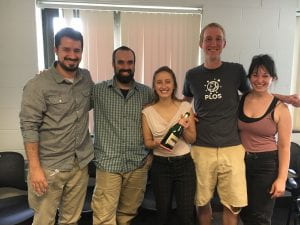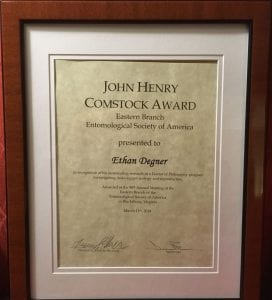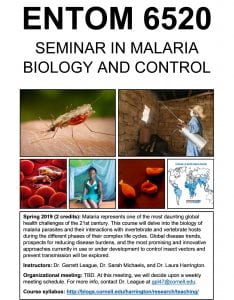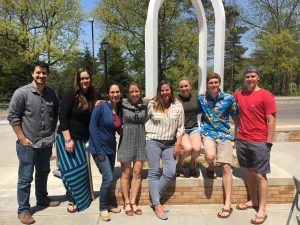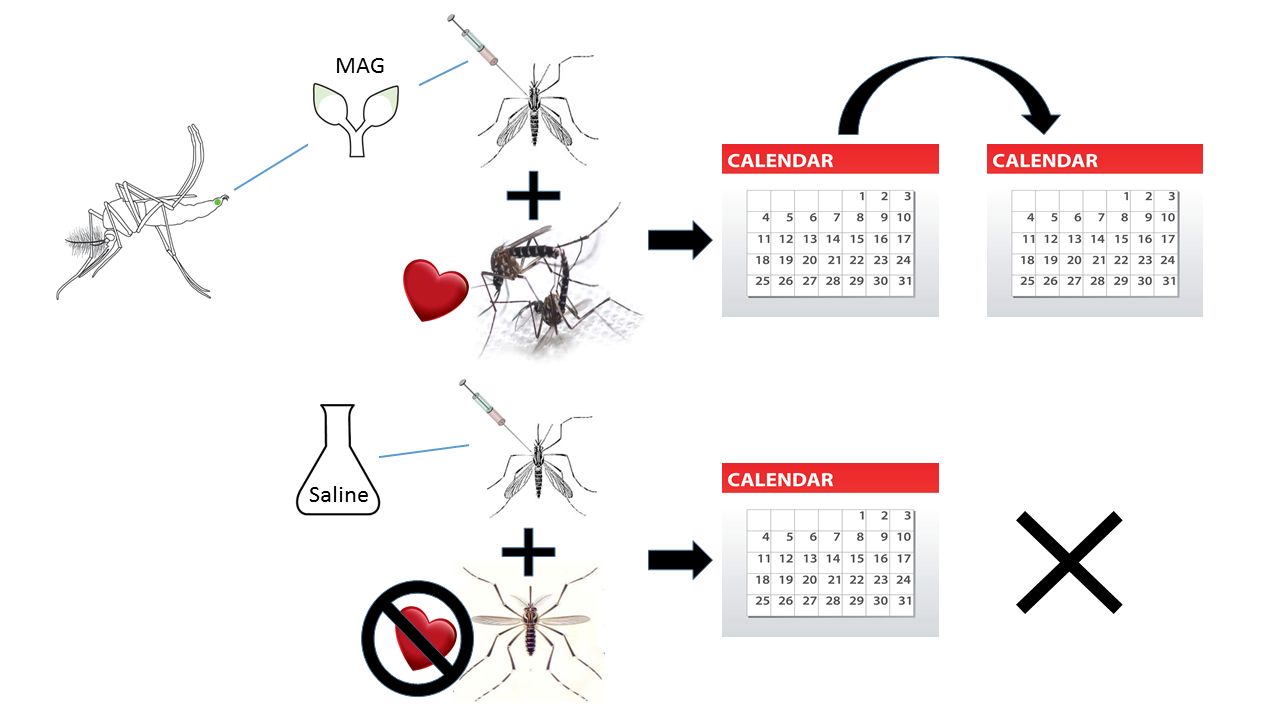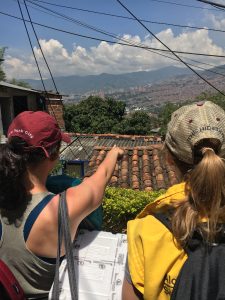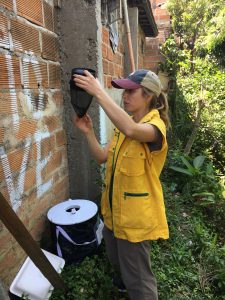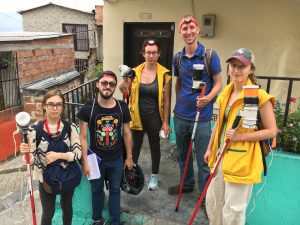Congratulations to lab alumna Laura Seeholzer!!
Laura was awarded the Larry Sandler Memorial Award for her thesis work on evolution of neural pathways driving mate choice in Drosophila fruit flies. So proud of her!!
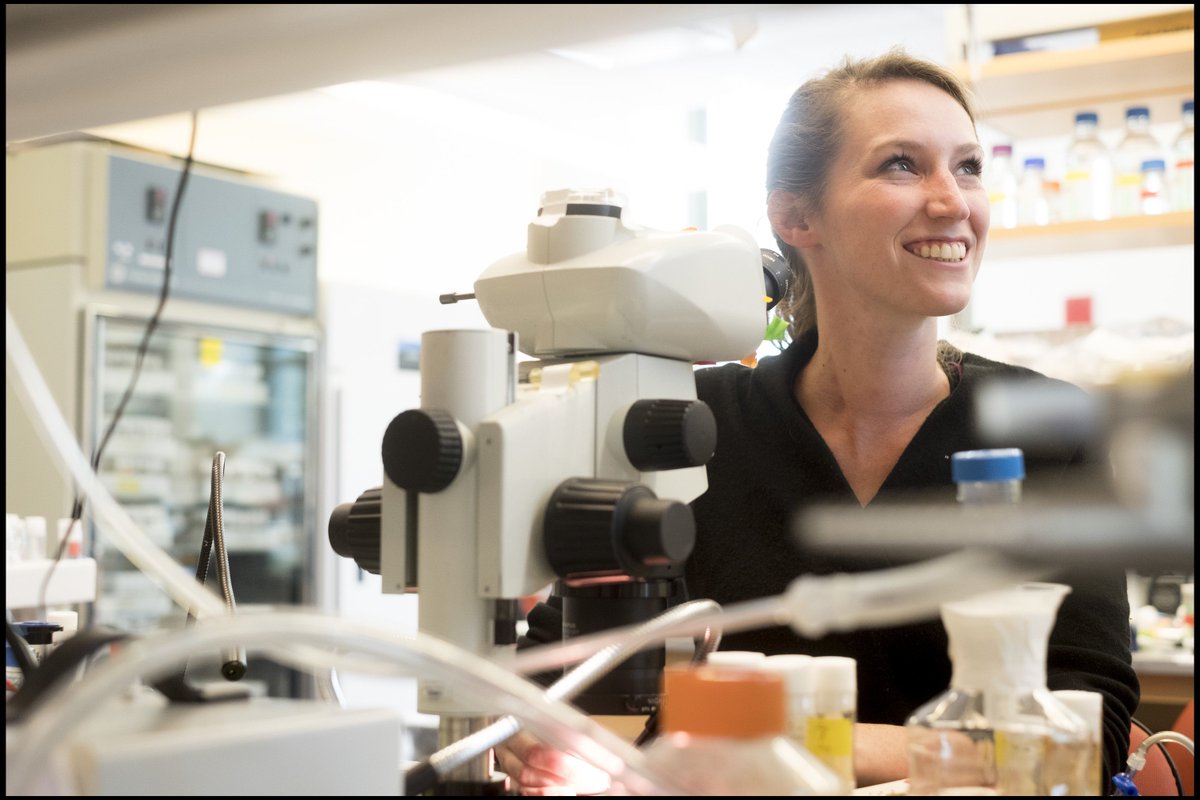
Congratulations Ethan! on winning the EB John Henry Comstock Award!!
New Spring 2019 Course! ENTOM 6530 Control of Disease Vectors Seminar
ENTOM 6530 (Control of Disease Vectors) introduces the history of vector-borne disease control with an emphasis on the Northeast USA. The Integrated Pest Management approach for control of arthropod vectors will be thoroughly discussed, including application methodologies, public outreach and education, insecticide resistance and potential future technology. Some lectures will be taught by experts in vector control/public health via video link. 1 Credit, Tuesdays 10:10-11 AM, Location: Comstock 2124, Instructors: Dr. Sarah Michaels Dr. Laura Harrington
New Spring 2019 Course ENTOM 6520: Malaria Biology and Control !
Great job to our undergraduates on presenting your research at the fall Harrington lab symposium!
Upcoming seminar hosted by the lab! Dr. Ben Matthews
Dr. Ben Matthews
Postdoctoral fellow, Rockefeller University
Monday, October 1, 2018
3:30 p.m.
2123 Comstock (Ithaca)
Thirsting for blood and hunting for water: genetics and behavior in the arbovirus vector mosquito Aedes aegypti
Abstract: The mosquito Aedes aegypti is a deadly vector of arboviral pathogens that cause dengue fever, yellow fever, Chikungunya, and Zika. Ae. aegypti have colonized large swaths of the globe, in part due to the female mosquito’s exquisite ability to detect human hosts for blood and to find and lay eggs in containers of fresh water associated with human habitation. My research is aimed at understanding the genetic and neural circuit basis of mosquito chemosensory behaviors, including host-seeking and egg-laying. I will describe a new chromosome-scale assembly of the Ae. aegypti genome and the development of CRISPR/Cas9 mutagenesis to target specific genetic loci and grant genetic access to molecularly-defined cell types. I have identified an ion channel expressed in sensory neurons of the legs and proboscis that is activated by fresh water and promotes egg-laying behavior. Loss-of-function mutagenesis, behavioral assays, and imaging of neural activity suggests that these sensory neurons represent a critical component of the neural circuitry promoting egg-laying and controlling egg-laying preference. The generation of novel genomic and genetic resources for Ae. aegypti can inform the rational design of vector control and disease intervention strategies, and provides an opportunity to address how arboviral infection might influence mosquito behavior and physiology at the level of genes, cells, and circuits.
Host: Laura Harrington

